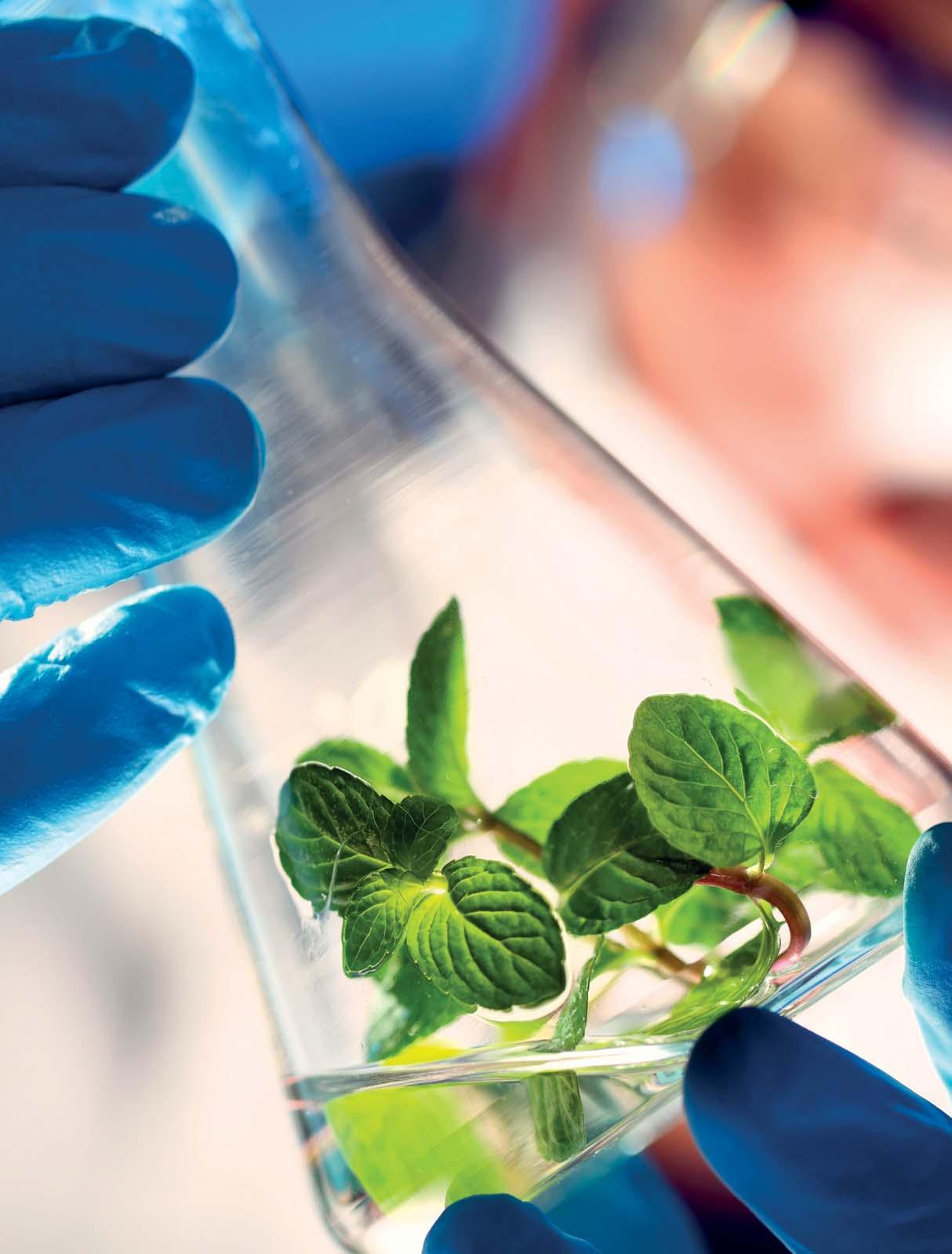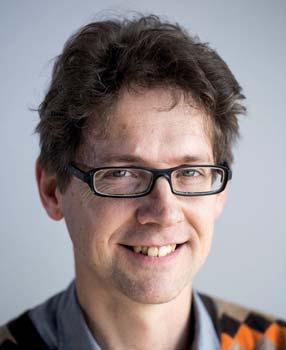
7 minute read
57
by 5rXobdlLrFp
flanders.bio: meeting the challenge of big data to find new health applications
An interview with Mr Willem DHOOGE, Co-General Manager of flanders.bio
Advertisement
What are the key figures of flanders.bio? flanders.bio is an independent industry association gathering biotech and life sciences companies. It was created in 2004 and relies upon a staff of eight, highly qualified people. Among its more than 350 members a majority is made up of Flemish companies but there are also firms from Brussels, Wallonia, the Netherlands, the United Kingdom and France. A final word about the life sciences sector in Flanders: it represents 18,000 jobs in R&D and 60,000 indirect jobs.
Could you introduce your members? Our membership base is divided into three main subcategories. The first one concerns R&D actors (research institutes, universities). The second one consists of companies with specific competences such as service providers, experts in intellectual properties, finance and human resources. Eventually, the third subcategory brings together companies with R&D activities for the development and or production of new medicines, new diagnostics and new types of technologies based on advanced bioinformatics including artificial intelligence and machine learning in order to come up with new health solutions. But the expertise of our members does not stop in the field of health: unlike the Walloon competitiveness cluster BioWin, flanders.bio has among its members an appreciated level of organisations with expertise in the field of agrobiotechnology.
Could you tell us about your networking and training activities? There are quite a lot of them! For example, we hold peer to peer meetings for C-level executives (CEO, CFO, HR…). We also organize a wide range of seminars and workshops, not only on new science in health and agrobiotech, but also on funding, on clinical trials etc. However, our most important yearly networking event is definitely knowledge for growth. This one-day event is one of the largest regional business conferences of the life sciences sector in Europe. Its 15 th edition took place in 2019 and attracted more than 600 companies and delegations from more than twenty countries. In total over 500 B2B meetings were arranged, which bodes well for future business partnerships in the sector.
Another kind of more focused networking is organised through the establishment of specific platforms in a number of scientific domains, like vaccines and immunology, agrobiotech, and regenerative medicine. In the field of training flanders.bio devotes itself to closing the gap between life sciences students (graduate, master and PhD levels), young professionals and the life sciences industry thanks to two separate programs. The first program, entitled “OPINNO”, is made of educational modules dealing with the life sciences industry and its various job opportunities. More than 600 students are reached every year by this program. © flanders.bio
The second program, called “Helis”, was developed with partners in Flanders and the Netherlands. It gathers specific training modules designed to increase the industry readiness of students and young professionals. These modules deal with, among other topics, clinical trials (see “Helis Academy Patient Centricity in Clinical Trials”, a project funded by the European Regional Development Fund and co-financed by the Agency for Innovation & Entrepreneurship - VLAIO - and the province of West Flanders), GMP… Between 10 and 20 professionals attend each session of this tailor-made program.
How do you promote the internationalisation of your members? flanders.bio collaborates with Flanders Investment & Trade (FIT) in order to support the companies that attend three major international life sciences and biotech conferences: BIO US, BioEurope and BioJapan. For these events, the association is also working hand in hand with BioWin in Wallonia: this allows companies to enjoy a single stand under the Belgian flag during these three conferences.
© flanders.bio
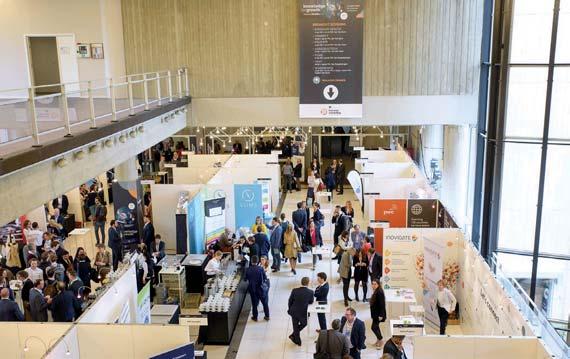
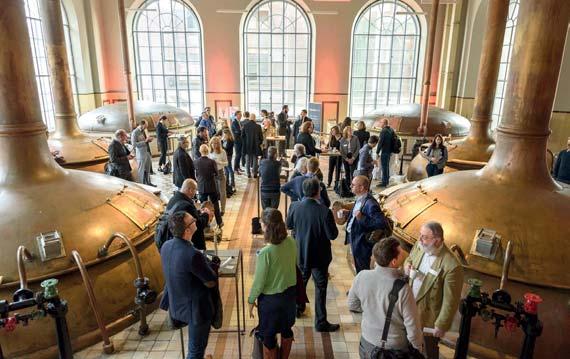
© flanders.bio
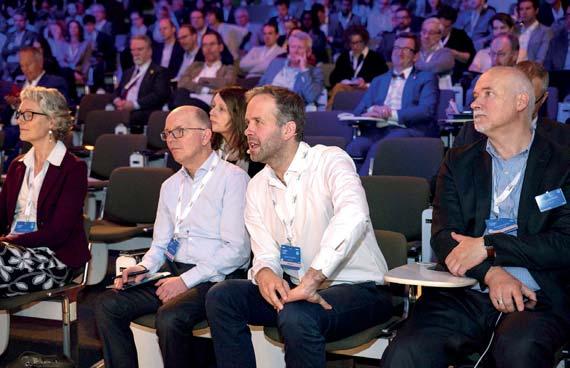
Moreover flanders.bio is one of the front runners when it comes to relationships with foreign firms. Indeed it has set up a life sciences welcome team together with FIT, the Flemish Agency for innovation and entrepreneurship and the VIB life sciences research institute. This team provides information to foreign companies considering creating a subsidiary in the region. It is especially interested in companies doing R&D and willingly makes them benefit from its expertise.
Could you tell us more about the expertise of flanders.bio? We have built up an in-house expertise of the ecosystem and its related topics in the fields of science and business. Our staff members have a PhD degree, an important scientific background or a broad knowhow in business. At flanders.bio we know who is doing what in the life sciences sector!
What other services do you offer to your members? We also have developed a wide range of communication services. Every day we send our members an overview of press articles on life sciences. On our website people can find for relevant information on the life sciences sector in our region. We assist our members with any questions they might have, and bring them in contact with potentially relevant business or R&D partners. Typically, as a cluster organisation, we send newsletters, mailings and commercial offers (such as attending conferences at reduced prices) on a regular basis.
What strategic partnerships have you concluded? There are two levels of partnerships. Informal partnerships, such as the one we have with BioWin, enable us to co-organize a series of events. Formal partnerships have also been concluded with international clusters such as the Japan Bioindustry Association (JBA). At the regional level flanders.bio enjoys the active support of a select number of companies like Janssen Pharmaceutica, PWC, KBC Securities, MODIS, PMV, VIB, IQVIA, SelectHR and QBD. These strategic partnerships span several years and are a firm commitment to assist flanders.bio in its effort to boost the life sciences sector in Flanders and Belgium.
Could you present us the innovation platforms and some research projects supported by flanders.bio? Flanders Vaccines is an independent, not for profit organisation supported by flanders.bio as member of the board of directors. The platform dedicated to regenerative medicine is run by one of our members. Likewise the platform on agrobiotech is run by flanders.bio but is open to, and will be extended to other relevant parties. The aim is to bring together all stakeholders in that
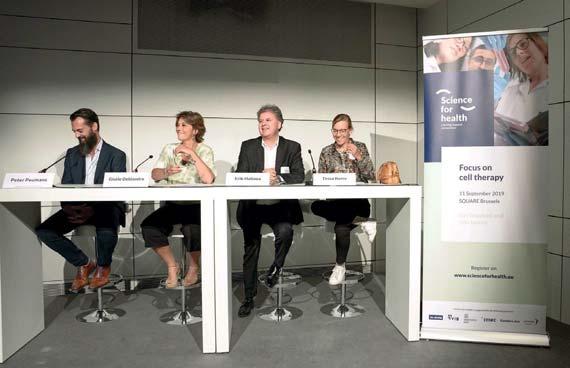
specific domain in order to tackle specific hurdles in the sector and facilitate R&D projects between companies and universities.
On top of that flanders.bio is driving the development of a new platform named flanders.health, together with two other organisations, namely DSP Valley and MedTech Flanders. flanders.health is a crosstechnological platform, to stimulate the collaboration between companies active in the biotech sector, medical devices and micro- and nanoelectronics. The aim is to merge the skills of these three technological sectors in order to come up with new health applications. Recently flanders.health launched its first call on personalised medicine. The call was a true success with more than 70 project ideas received. Some of them were submitted to the Flemish government for research funding. The consortium is in full preparation of a second call that will normally be launched late 2020. For its part flanders.bio helps to stimulate and facilitate the submission of projects, to find partners, to screen the valorisation potential of submitted projects…
What do you see as the main challenges facing life sciences companies in the coming years? I can see three of them. The first challenge is related to big data, existing health related data but also new types of data like those from social media, sensors, devices etc. It is all about the complexity of data structuring, data access, quality and availability. With the aim to further explore and understand the origins and evolution of diseases, and how to efficiently tackle these diseases in a personalised way. flanders.bio and flanders.health are joining hands to take up the structural challenge of gathering all data scattered at the level of the hospitals, at the regional level, at the federal level… They strive to set up initiatives to organize these data for the use of companies while respecting the patients’ anonymity. For the time being initiatives are undertaken in the right direction but they are very slow alas! A second challenge deals with the war on talents: in a high-tech sector like that of biotech people with a lot of knowledge are scarce and therefore more and more needed. It is all about training and flanders.bio is doing its part in this area. Eventually a third challenge is the scaling-up of biotech companies. Our ecosystem is good but still fails to take the next step: our members find it difficult to become independent, larger-scale companies in the absence of funds necessary for their growth. Unlike the American investment funds boasting one to two billon dollars, Flemish companies have to remain content with business angels and venture capital companies which do not have the financial base to help the biotech sector reach a full-scale momentum. At least they have the merit to exist!
